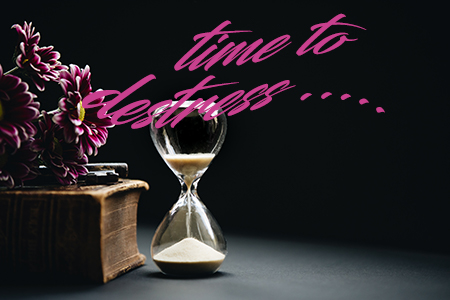Managing Stress in Senior Healthcare Caregivers
If you are the caregiver to a family member or client, you know that a lot depends on you. There are many facets to managing caregiver stress in senior healthcare. There may be emotional demands, practical issues, medical dilemmas and other things that could get you run down. Even if your senior-aged loved one is in rehabilitation, when you are the point person, much is dependent on you.
For example:
Communicating with a senior who has a hearing impediment or communication challenge.
Getting a senior patient to take all of their medicine on schedule is sometimes quite a task.
Making sure the senior patient is dressed, has eaten and is ready to go out to on time to an occupational or physical therapy appointment.
Responding in an even-tempered yet supportive manner to a grouchy patient, can be a challenge.
Keeping your loved one far way from infection.
How can a Care-Giver Manage Their own Stress Levels?
Here are some tips to help you keep strong. These will help you feed yourself with positive energy and resources, and avoid things that will rob you of energy.
Here are 5 tips from the American Psychological Association (APA) to manage stress. We can apply these tips to managing caregiver stress in senior healthcare. The APA recommends to give yourself chunks of 20 minutes of stress relief in the following areas:
1. Create a distance temporarily from the source of stress
Either go out for a little while or, switch off mentally for a set amount of time. During that time do what you want. Rest, sing, have a snack, learn about something inspiring do what you enjoy. Then return to your charge, refreshed.
2. Exercise
With or without music, do some stretches, run outdoors or inside, even jogging on the spot, dance or take a swim if you can. These are excellent ways to reduce stress, as exercise benefits both the body and the mind. And the good thing about exercise is that you can expect instant results, that last for hours.
3. Smile and Laugh
Take the stress out of your facial muscles and out of your mind. For some people watching a comedy does that. Maybe you would enjoy a laughing therapy session. Since the brain is connected to our facial muscles, smiling and laughing really can help you to think better. Phyllis Diller is quoted as saying, “A smile is a curve that sets everything straight!”
4. Get Social
Get support from a friend or a supportive, calming family member. Merely sharing what is on your heart will help. This is regarding how you are managing your care-giving task and/or your concerto for the senior aged patient. A problem shared is a problem halved. Talk in person, on the phone, by email and/or messaging.
5. Meditate
Call it focusing, mindfulness, meditation or prayer, this form of thinking and connecting to your own inner strength or to powers that are beyond your limits, can give you a lot of strength. The AHA talks about the importance of seeing things in a new light, and forgiving yourself and other people. This is a tool to release emotions, face the truth with renewed strength. Here too, a little meditation goes a long way.
You can pick an empowering phrase and repeat it to yourself throughout the day.
Strength to Keep Going and Keep Giving
These tips are good for all of us, no matter how old we are and who we are care-giving to.
Avoid losing strength with these tips:
- Avoid refined sugars – go for complex carbohydrates.
- Reject caffeine, nicotine and alcohol.
- Learn when you have done enough. Sometimes a person has to say “No.”
- Sleep enough good quality sleep – if needed, try relaxation before sleeping.
- Push away guilt-inducing thoughts. When you are in a demanding senior healthcare situation, it is not the time for self-introspection which can detract from your inner strength.
Gain strength with these tips:
- Learn and practice relaxation techniques.
- Keeping a stress diary can help you understand what triggers stress.
- Learn problem-solving techniques. Then you won’t become overwhelmed so easily.
- Become a time management expert. Being organized will show you which tasks can be delegated to someone else.
After All, You Answered the Call
A person sometimes has to pat themselves on the back.
You can clap hands for yourself, you can cheer yourself on. You answered the call to duty.
Tell yourself “Well done!” for the kindness and respect that you show to the person you are looking after.
When managing caregiver stress in senior healthcare, what you put in to yourself, is what you get out. But since you are giving of yourself to another person, the output is doubled. Not only do you benefit, but your charge will feel the benefit too. Managing stress is an essential that you just have to indulge in!

Photo by Nathan Dumlao on Unsplash
